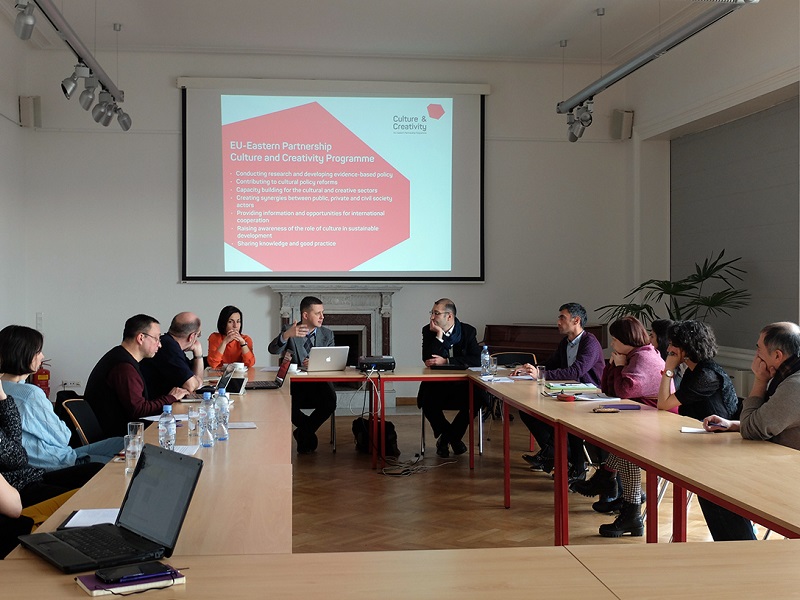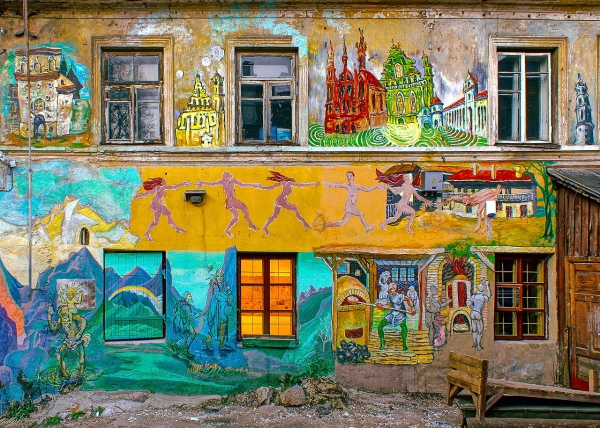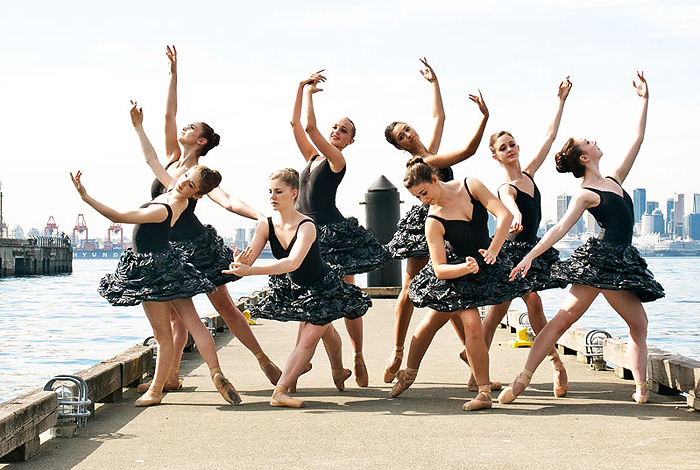
5 lessons learnt from consultations on Georgia’s Culture Strategy 2025
- Openness of process
The first draft of the Strategy document is a result of 2 years of work; it began as communication of the Ministry of Culture and Monument Protection with stakeholders across 12 regions and 19 thematic groups, represented by 1484 citizens; 65 interested individuals filled out the online questionnaire; initial impressions were collected in a 350 page document and then summerised in 65 pages as the first draft of the Strategy; the document puts its entire emphasis on the following 10 key areas: awareness raising and education; accessibility to culture and cultural diversity; place of cultural policy across other branches of public policy; remuneration and social guarantees; funding mechanisms of culture and arts; infrastructure development; good governance practices; cultural and creative industries; protection of IPR’s and internationalisation of culture. Currently the document is undergoing its final stages - it is the subject of public consultations both in Tbilisi and the regions again. Tbilisi meetings are organised by the EU-EaP Culture and Creativity Programme. The Ministry, on the other hand, is implementing the regional debates.
.png)
-
Individual vs group opinions
The moderator of consultations in the capital, Ragnar Siil has hinted, that when similar consultations are held in the West, among them in his native Estonia, the conflict mainly arises from the difference of interests between institutionalised and non-institutionalised operators of culture, whereas in Georgia the reason for such antagonism has been when the weight of heritage starts to be challenged by the rising power of current trends. In reality opinion-making process in Georgia’s arts and culture sphere is dominated by individual/subjective interests of operators who are highly scattered and disorganised; Recommendations and suggestions produced by individuals still keep coming in up until presently. Therefore, to measure the quality and extent of their participation and assess their feedback has been a challenge. However, one thing has been for sure - current consultations became an excellent opportunity to enhance stakeholder involvement and make them feel more confident about the process.
-
Importance of Action plan
Civil society representatives were quick to acknowledge that the Strategy will eventually encourage more clarity regarding the mission of culture and also increase public interest towards this field, therefore the process has to be widely welcome and supported. However, they also kept reminding that this brave undertaking will make little sense if firstly, the Strategy document is not given a legal executive power and secondly, if the working process on the forthcoming Action Plan is not at least as open and transparent as this process. What certainly has been making a difference during consultations was that participants have been consistently reminded that the Strategy is a chance to agree only on basic principles, strategic goals and tasks, but not specific actions, which the entire sector is awaiting so eagerly - actions will actually have to be formulated in an action plan right after the Strategy is adopted. Naturally, artists are particularly impatient in respect to real actions and changes. Now the Strategy is regarded as the bridge to those actions, so the sector representatives start to feel like taking care of this bridge.

-
Online vs personal communication
Consultations have succeeded in exposing some vulnerable areas too, most notably in regard to communication: although the entire society is proliferated with social media, reliance only on it and on online discussion format has not provided sufficient means for effective outreach and awareness raising. Perhaps this is due in part to the scattered nature of Georgia’s culture, but also to an artists’ inherent approach to human relations. Anyway, more personilised interaction during consultations demonstrated that culture and arts operators particularly value when they actually see and talk to decision-makers.
-
Clear follow up after consultations
Ultimately, consultations have resulted in an extensive list of recommendations but the following are the most noteworthy: to strengthen the document with an ambitious and inspirational vision for culture, whereby it is basically said that culture and arts is extremely important for Georgia and that Georgia’s culture should have an international value; and to introduce innovative funding mechanisms for culture and arts. Overall, the process is about to be finalised - the Ministry of Culture has promised to submit it to the rest of the government for adoption by the end of March.




